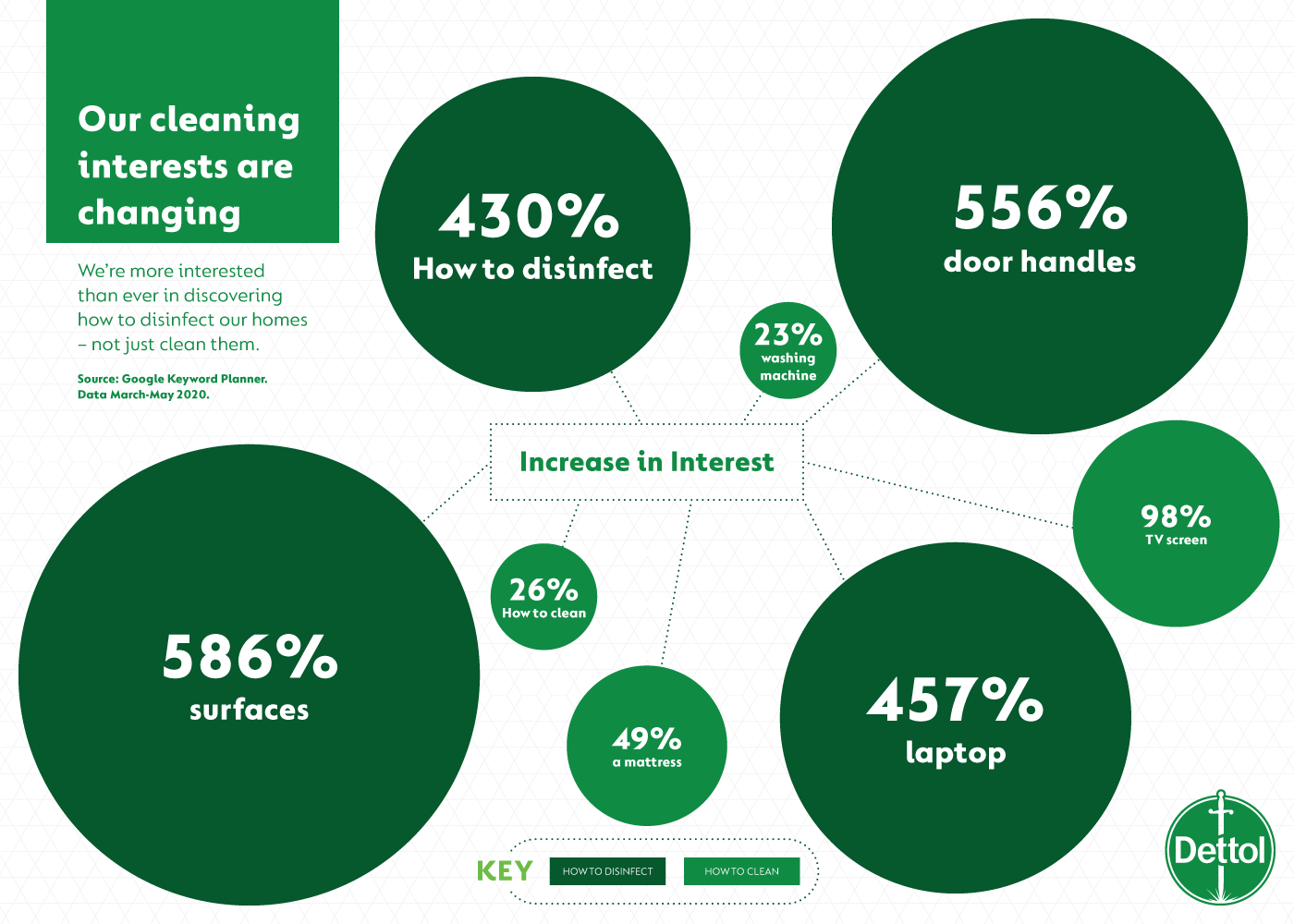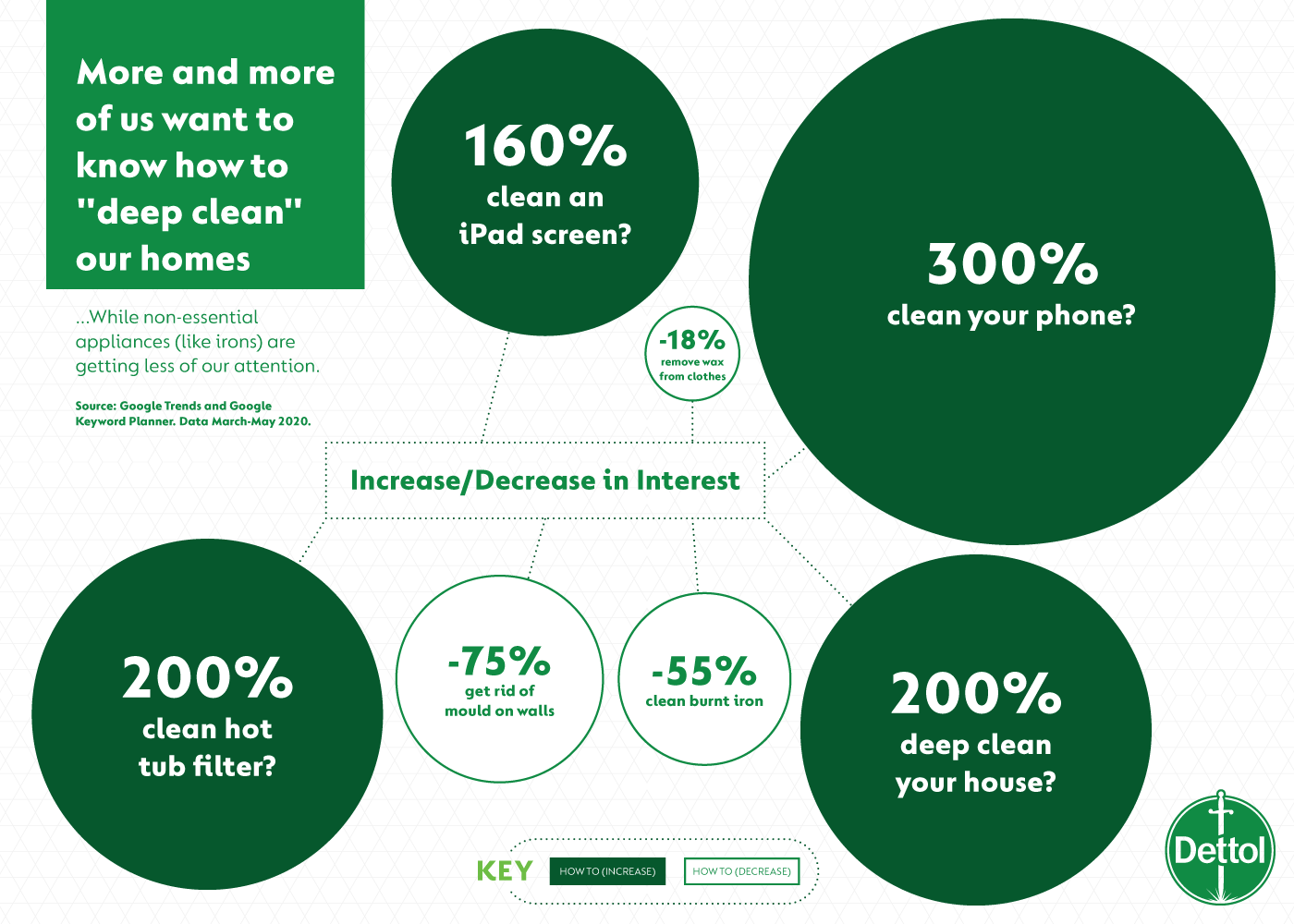The pandemic has made us more conscious about home hygiene, which comes as no surprise, since we’ve spent a lot of time sitting behind desks within our own four walls working remotely. In a recent Dettol report, the cleaning giant pointed out that Google searches for terms like “how to deep clean [the] house” dramatically increased when work-from-home policies came into effect.
You can read the full cleaning report here, which is stuffed with pointers on how to clean properly, but we’ve also gone ahead and distilled their advice in the article to follow.

Story Stages
Which areas require the most attention in the home?
Dettol partnered with Dr Lisa Ackerley, a Hygiene Doctor, to investigate ways we can clean more effectively. While many of us want to know how to “deep clean”, the phrase is largely meaningless. Instead, as Dr Ackerley points out, we should be focusing on small areas of the home that we touch regularly.
These include:
- Food preparation surfaces
- Door handles and appliance handles
- Toilet flushes
These surfaces are germ carriers and when we clean them with an antibacterial wipe, we actually break a chain of infection. That’s why we should concentrate on cleaning these areas every day.
Also, if you have more than a few people living in your home, be sure to wash the hand towels daily.
Deep cleaning sounds effective, but it doesn’t achieve much
What do we think of when we picture a deep clean? Sanitising floors with powerful disinfectants? Scrubbing the walls and hoovering tucked-away corners of the home? All of this stuff is surplus to requirements in the day-to-day course of things. Unless you’ve got children playing on the ground, you’re not touching the floor, nor are you really coming into contact with many of the long-forgotten surfaces that might be gathering dust.
Effective cleaning, then, is focusing on the points we mentioned above: handles and flushes for a start; shoes off at the door – small things that we can do in minutes. A long, deep clean that might take hours can be saved for those moments when we have guests coming over and we want to put our best foot forward.

How should you clean?
Finally, there’s a difference between “cleaning” something and “disinfecting” it. Cleaning your home could involve tidying it; but to actually get rid of germs, you want to use an antibacterial wipe or surface disinfectant. It’s an important distinction to keep in mind.
Dettol has a range of products on offer than you can take a look at, but any cleaner with “disinfectant” in its title will work as well.
In the end, working from home in the midst of a pandemic has made us more conscious about hygiene. But the good news? It’s the small things that count in the day-to-day running of things.
Finally, we mentioned briefly that the UK population wants to know how to deep clean, but there are a few other stats that came to light in the report as well. Since the pandemic, there’s been a:
- A 75% reduction in searches for “how to get rid of mould on walls”
- A 556% increase in “how to disinfect door handles”
- A 586% increase in searches for disinfecting surfaces
It makes for interesting reading, and you can check out the full Dettol guide for more.
